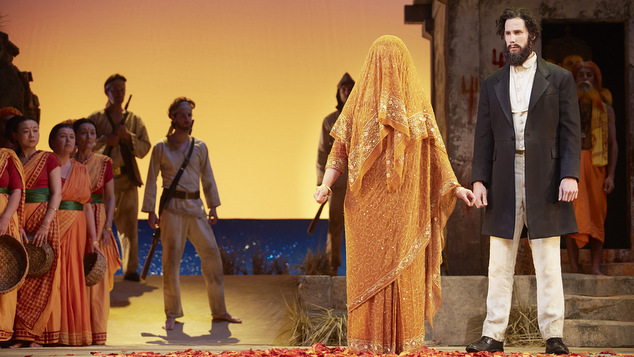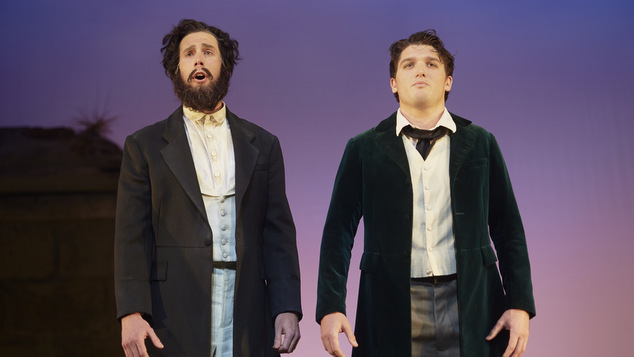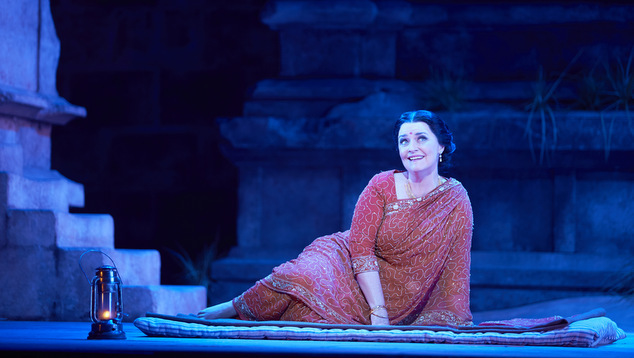
The Pearl Fishers (Bizet) | West Australian Opera | Until 5 November
The WA Opera’s latest production of Bizet’s beloved exotic opus brings to the stage exactly what seasoned opera-goers would expect from the reprisal of a universal crowd-pleaser: competent performances, spectacular set designs, and a tale of romantic entanglement set amidst a tropical clime.
The story of the Pearl Fishers is modeled on a staple of 19th century romantic fiction, the love triangle, with two sworn friends (Zurga and Nadir, the eponymous Pearl Fishers) competing for the affection of the same woman, Leila, who also happens to be the priestess of a fictitious Ceylonese community.
The conflicts between loyalty and passion, and the tension between duty and desire, form the bedrock of the libretto, which has been widely acknowledged as perhaps not the most sophisticated piece of narrative writing in the operatic canon.
Indeed, the bareness of the surtitles, which uncouple the language from its musical context, make the content of the libretto seem very amateurish indeed.
The score, however, is the mainstay of the piece, handled here with subtlety and restraint by conductor Brad Cohen.
The cast, for the most part, deliver their arias competently, but often without real conviction. The performances are largely wooden and static, and the dynamic between characters rarely feels genuine.

While Zurga (Sam Roberts-Smith) is suitably solemn and grave, it is difficult to summon sympathy for his betrayal by his friend Nadir. Leila (Emma Matthews) is adequately plaintive and torn, but does not reach any point of emotional epiphany.
The highlight of the production, however, is perhaps that which is the least planned, relating to the last minute cast change for the character of Nadir. Due to the health concerns of John Longmuir, New Zealand tenor Jonathan Abernethy has been drafted in to fill the shoes, and delivers a show-stealing performance by bringing to his character a tangible vulnerability and romance, and infusing his delivery with a rich emotional texture.
The staging, while picturesque and suitably evocative of exotic climes, does little to elevate the proceedings above the ordinary. The broken chairs in Zurga’s quarters during his soliloquy are a playful, abstract detail that is largely absent from the conventional stagecraft of classical columns and stained colonial architecture.

The exotic location presents a number of dilemmas that are sidestepped in this production, with a chorus of largely white actors standing in for the native population, and the main characters cast as figures of colonial romance—as Director Michael Gow articulates in his notes—rather than as indigenous inhabitants.
This is perhaps a politic decision when reproducing a work steeped in 19th century orientalism and fascination with the racial “other”, but some attempt to engage with the irony of this element may have served to bring more intellectual engagement with the historical and racial connotations of the work.
Nevertheless, opera lovers will find much to enjoy in this latest production from the WA Opera, even though the interpretation does little other than reproduce a well-worn classic, without attempting to transform it.
The Pearl Fishers is at His Majesty’s Theatre until November 5th.
Jade Nobbs




